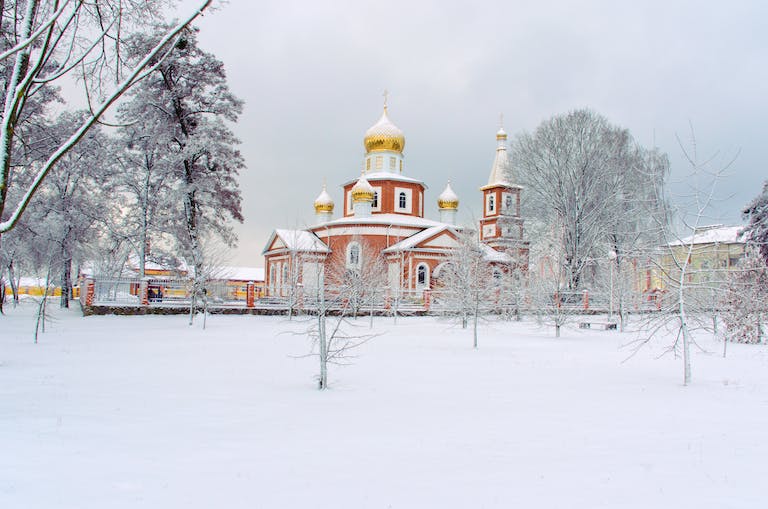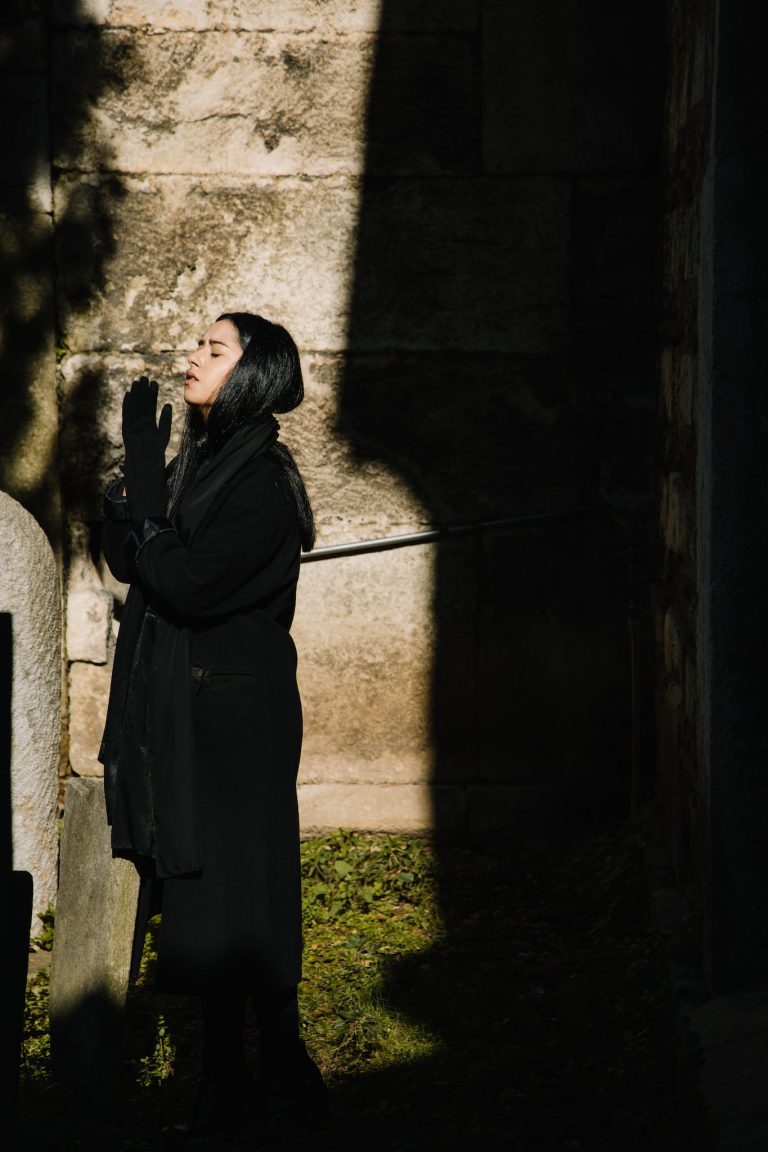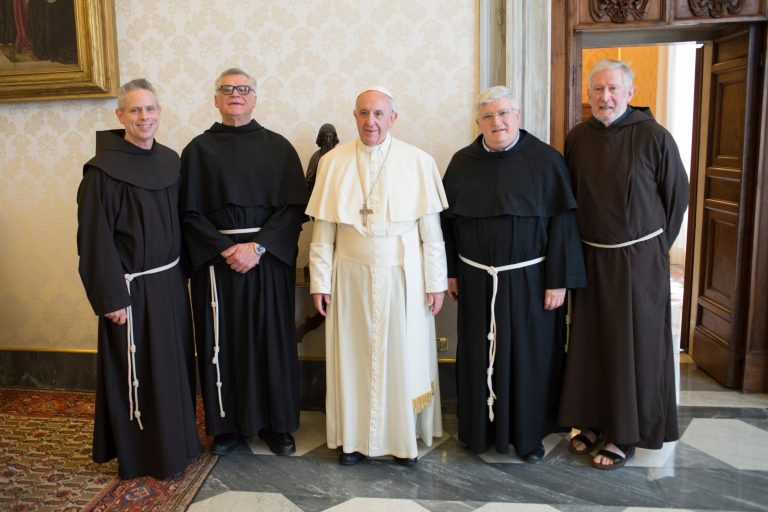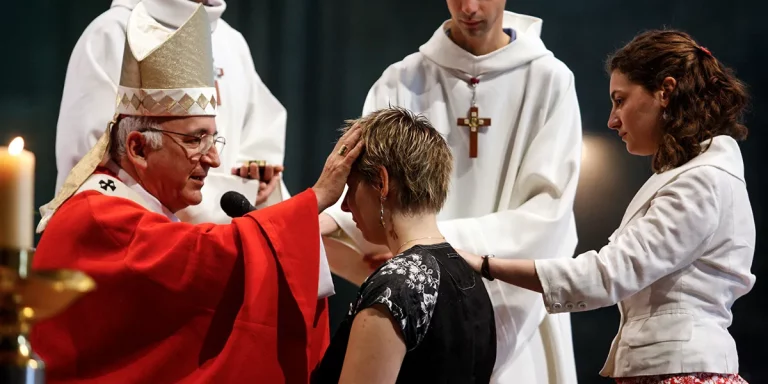Is today a holy day in the Catholic Church? Complete List
In the Catholic Church, Holy Days of Obligation are days on which Catholics are required to attend Mass and refrain from unnecessary work. These holy days commemorate important events in the lives of Jesus Christ and Mary.
What Are the Holy Days of Obligation?
Holy Days of Obligation are significant feast days in the Catholic liturgical calendar on which Catholics participate in the celebration of the Eucharist (Communion). In addition to Sunday, the day of the Lord’s Resurrection, the Catholic Church mandates the observance of other holy days that commemorate events in the life of Jesus Christ or Mary.
On these days, Catholics are obligated to attend Mass and to refrain from any unnecessary labors or activities that would keep them from giving proper attention to the spiritual significance of the day. The purpose of obliging Catholics to participate in Mass on these days is to foster a greater devotion to God through commemorating the mysteries of the Christian faith.
When are holy days of obligation?
The following are the Holy Days of Obligation in the Catholic Church for 2023:
- January 1: Solemnity of Mary
- Thursday, May 25: Solemnity of the Ascension
- Wednesday, August 15: Solemnity of the Assumption of Mary
- Wednesday, November 1: Solemnity of All Saints
- Friday, December 8: Solemnity of the Immaculate Conception
- Monday, December 25: Solemnity of the Nativity of Our Lord Jesus Christ
In many places in the United States, the feast days of the Epiphany (January 6) and the feast of the Body and Blood of Christ, or Corpus Christi (Thursday after Trinity Sunday), have been moved to the adjacent Sunday to facilitate mass attendance.
How are holy days determined in the Catholic Church?
Canon Law determines the universal Holy Days of Obligation for the Latin Rite of the Catholic Church. Local bishops conferences can set additional feast days as obligatory in their region or shift holy days to Sundays (the day of the Lord’s Resurrection) to make it easier for the faithful to attend Mass.
So while the six days listed above are universal, some regions may have additional holy days of obligation. For example, in the United States, the solemnity of the ascension has been moved from Thursday to the following Sunday.
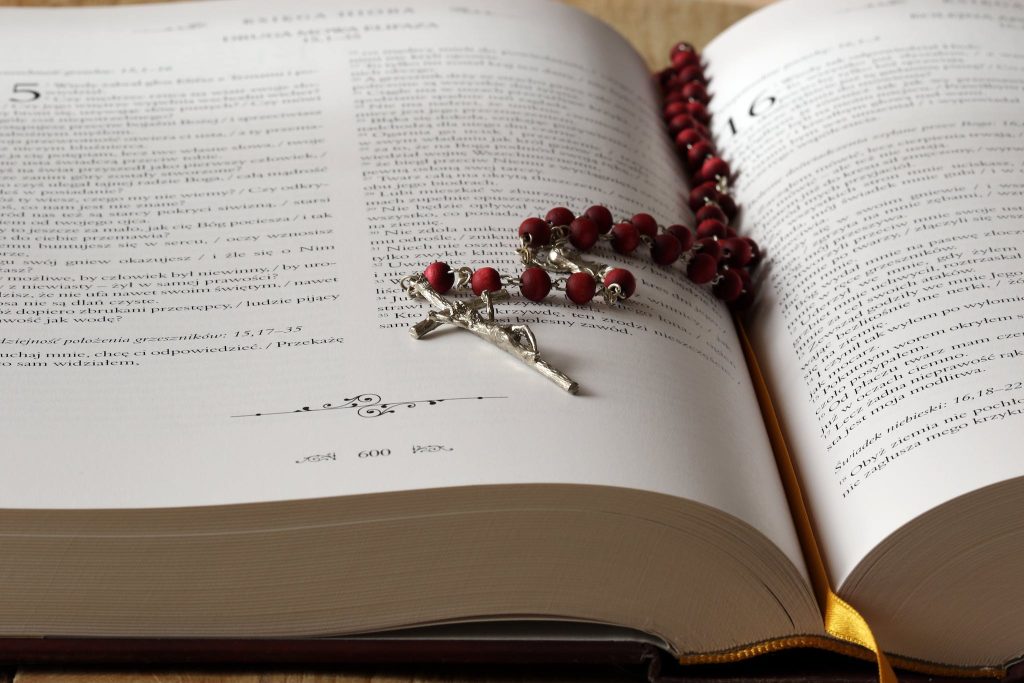
Why are there holy days of obligation?
The purpose of Holy Days of Obligation is multi-fold:
Commemorate Significant Events in Christ’s Life
They allow Catholics to commemorate important events in salvation history, chiefly events in Christ’s life, such as his birth, death, and resurrection. Observing these days fosters devotion to Christ.
Honor Mary and the Saints
In addition to feast days that honor Jesus, Holy Days of Obligation commemorate events in the life of the Blessed Virgin Mary, like the Immaculate Conception and her Assumption into Heaven. Days that honor the saints, like All Saints’ Day, are also important.
Strengthen Catholic Identity
Holy Days of Obligation also deepen Catholic unity and identity. By celebrating the same feasts and mysteries of the faith together with other Catholics around the world, these days strengthen the sense of community in the Catholic Church.
Set Aside Time for Spiritual Renewal
Making special time for spiritual renewal, contemplation, and participation in the Mass on Holy Days of Obligation facilitates spiritual growth. Taking a break from mundane occupations to focus on the spiritual brings Catholics closer to God.
What Happens During Mass on Holy Days?
The liturgy for Holy Days of Obligation focuses specifically on that feast day. The readings and gospel passages are tied to the Holy Day, and the homily explains the significance of the feast.
Sometimes the liturgy includes additional rituals. For example, on the solemnity of Mary on New Year’s Day, the Mass often involves singing the Veni Creator Spiritus and including a special blessing for the new civil year.
Other than the themed components centered around the Holy Day itself, the order and structure of the mass liturgy remain the same.
Is it a sin to miss Holy Day Mass?
Yes, it is a sin for Catholics to miss Holy Day Masses without a serious reason (like illness). In the Code of Canon Law, the Catholic Church commands the faithful to participate in Mass on Sundays and Holy Days of Obligation. If no grave inconvenience or inability excuses them, Catholics are sinning if they simply miss these days.
However, many dioceses do grant dispensations, relieving people of the obligation in certain circumstances. For example, when holy days like the Ascension or the Immaculate Conception fall on a weekday, diocesan bishops will sometimes issue a dispensation since it can be difficult for some people to attend Mass during the workweek.
What Counts as a Valid Excuse for Missing Holy Day Mass?
According to the Catechism of the Catholic Church, excusable reasons Catholics may be legitimately prevented from participating in Mass include:
- Illness or infirmity
- Caregiving duties to infants or sick family
- The unavailability of a priest
- Distance/lack of transportation
- Severe weather or dangerous travel conditions
Essentially, grave inconveniences that would cause substantial hardship or prevent someone from getting to Mass excuse Catholics from the Holy Day of Obligation. They should still strive to the extent that they can observe the holy day in other ways, like through prayers or Scripture reading.
Can You Still Receive Communion If You Miss a Holy Day Mass?
Technically, yes, you can still receive Holy Communion the next time you attend Mass, even if you missed the previous Holy Day Mass without a valid excuse. The prohibition on receiving the Eucharist is primarily concerned with being conscious of grave (mortal) sin rather than failing to fulfill every Mass obligation.
However, intentionally missing a Holy Day Mass without a legitimate excuse is still a venial sin. So while it doesn’t forbid someone from subsequently taking communion, it is still an offense against God that requires repentance and reconciliation through the sacrament of confession.
The main thing is that intentionally missing an obligatory Mass should prompt Catholics to reflect seriously on the reasons why and to stir up sincere regret and a purpose of amendment to do better.
Do holy days of obligation count for two masses?
No. Many Catholics think that attending Mass on a Holy Day of Obligation counts towards both that day’s obligation and the regular Sunday obligation. However, Canon Law explicitly states that Holy Day Masses do not “count twice.”
So if a Holy Day of Obligation falls on a Saturday or Monday, Catholics must still attend a separate Sunday Mass; the Holy Day liturgy does not fulfill the Sunday obligation. The only exception is if the rank of the Holy Day exceeds that of the Sunday, which only occurs with Christmas and certain other high Holy Days.
The reason behind this is that Sunday worship is so integral to the Catholic faith that it stands alone as a distinct obligation for participation in the celebration of the Eucharist.
Summary
Holy Days of Obligation play a vital role in allowing Catholics to commemorate the saving events of salvation history, fostering devotion to Christ and Mary, strengthening Catholic unity, and setting aside time exclusively to draw nearer to God through worship and the Eucharist. By honoring these days, Catholics grow deeper in their faith.


